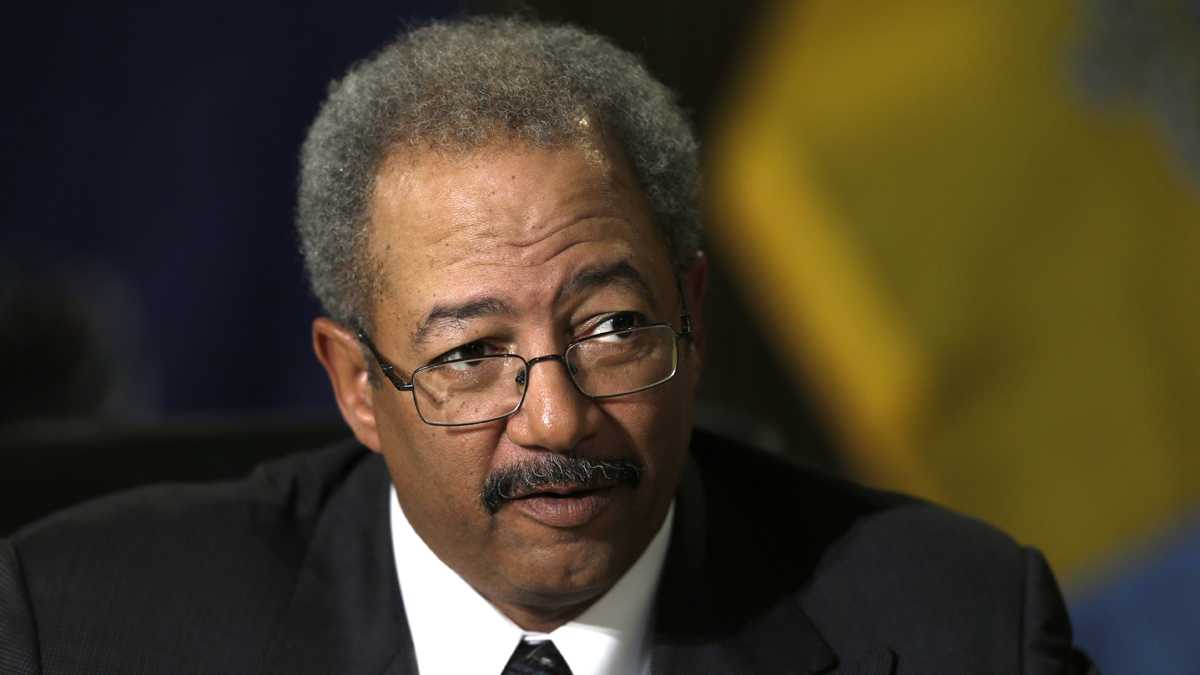Fattah indictment a tale of complacency followed by panic
Listen
U.S. prosecutors allege in a court filing that an elected official who can only be U.S. Rep. Chaka Fattah arranged an illegal campaign contribution for his 2007 Philadelphia mayoral campaign. (AP Photo, file)
Fish don’t know the ocean is salty; they just swim in it.
Could it be that Democratic politicians in Philadelphia don’t know corrupt behavior when they take part in it, because dubious deeds are just the ocean they swim in?
How else to explain congressman Chaka Fattah’s blithe response to the sweeping, detailed corruption indictment handed up against him and four others last week?
Tonally, Fattah’s confident statements about his eventual exoneration seemed to go beyond the normal spinning by the famously accused. The 20-year congressman is either a fabulous actor, or he really believes the feds’ cases is much ado about nothing.
If you read the 85-page indictment, you have to wonder what mood-elevating drug Fattah has gotten his hands on.
Now … yes, innocent until proven guilty. And, yes, the prosecutors’ case is complex, with no vivid smoking gun. But, if your representative in Washington truly thinks the kind of behaviors depicted in the indictment (and, remember, two people close to Fattah have already pleaded guilty in the case) don’t warrant his resignation, well …. holy cow
If this stuff is just the normal moves of Philly politics, then normal Philly politics has run off the rails.
Joe DiFelice, who heads the Republican Party’s embattled outpost in a Democratic town, put it this way: “The arrogance of incumbency had led to the culture of corruption in Philadelphia.”
Yep.
Arrogance and complacency run through this tale. Fattah represents a meticulously gerrymandered district that guaranteed him 90-plus percent of every vote. He almost never had to work to win. So, when he ran for mayor in 2007, he sought the easy road to financing his campaign — scarfing up six-figure checks from big dogs.
One problem: New city campaign rules set strict, limits on individual donations. No biggie, Fattah told himself, I’ll take the checks anyway, because courts will overturn those silly rules.
Except they upheld them.
By that time that happened, Fattah was faltering towards his ultimate fourth-place finish. He needed that big “loan” from one rich individual to stay afloat. The need to repay the loan then led to the scrambling schemes prosecutors now describe as corrupt.
A jury and judge will sort out the question of illegality. But the ethical question seems to me more clearcut: This is not how we want our elected officials to behave.
Only in a corrupt, contented, complacent, one-party town could people do such things and blithely believe they were OK.
WHYY is your source for fact-based, in-depth journalism and information. As a nonprofit organization, we rely on financial support from readers like you. Please give today.




